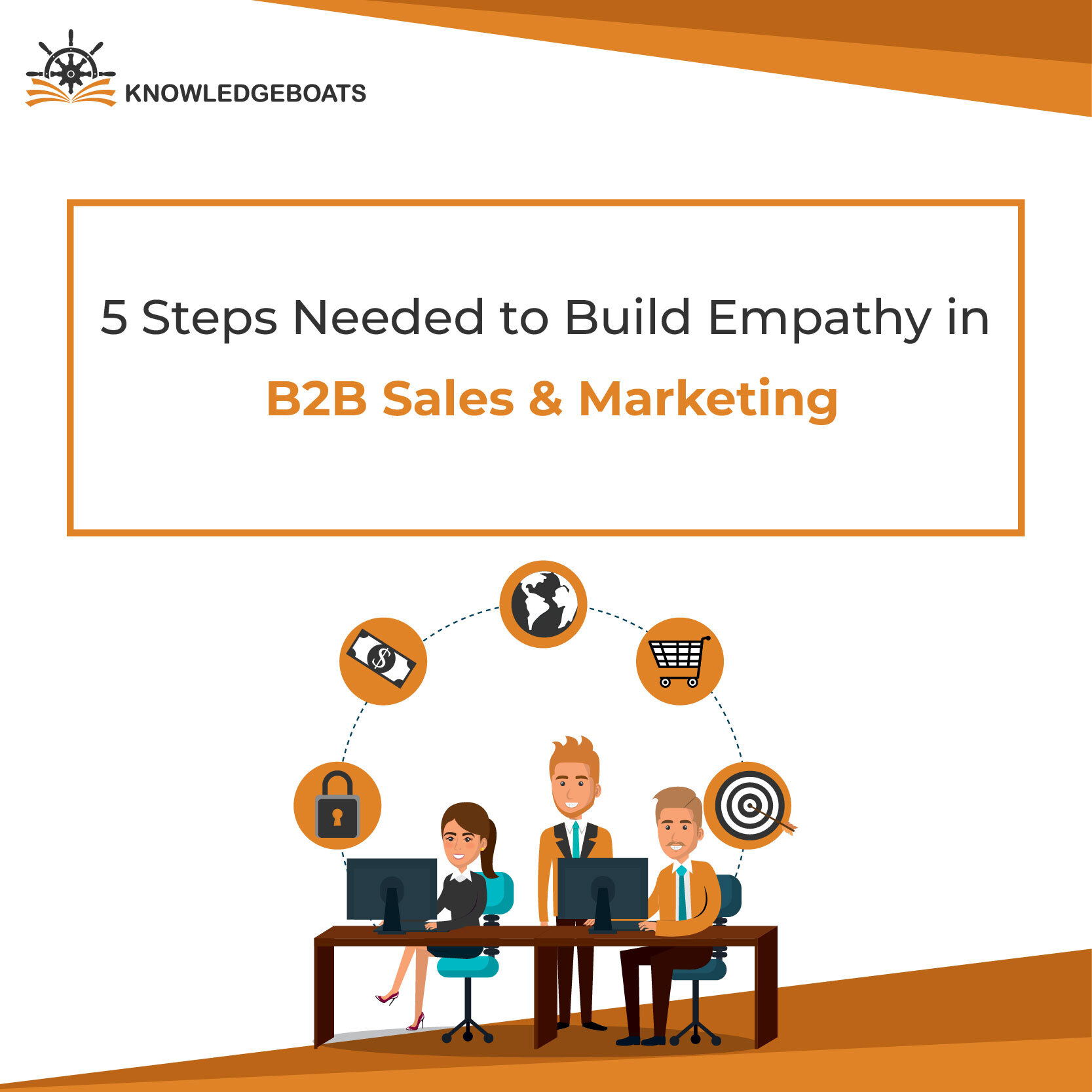
Empathy is about understanding and connecting with other people’s feelings, and in business, it’s a game-changer that gives you a real edge over the competition. It fosters stronger relationships with customers and clients, enhances customer satisfaction, and boosts sales. Empathy plays a major factor for sales and marketing professionals to make customers feel connected and truly understood.
A sales cycle is the conversion of potential customers into paying clients, typically beginning with lead generation and concluding with a closed deal. Including empathy develops personal connections and demonstrates a deep understanding of customer needs. Businesses must foster an environment of empathy to connect with clients and prospects, lack of which can lead to missed opportunities.
Empathy cannot be developed overnight or through a single interaction; it is a long-term process that requires consistent effort. Every B2B organization needs a step-by-step process to implement empathy in their B2B Sales & Marketing for business practices, ensuring they stay ahead of the curve.
5 Steps to Foster Empathy in B2B Sales & Marketing
Empathy in sales is often overlooked. It has now become a vital component of advanced marketing in creating rapport with prospects. When sales professionals are empathetic, it creates an environment of trust, which leads to better relationships with clients.
- Listen Actively
Understand your customer’s needs and journey to map out their feelings, thoughts, and actions at every stage. Understanding your client’s perspective and comprehending their needs, goals, and pain points will help in anticipating potential challenges and combat with them proactively.
Tip: Summarize what your clients share to confirm your understanding. For example, you could say, “Just to make sure we’re on the same page, you’re looking for a solution that improves lead conversion and shortens your sales cycle, correct?”
- Start Conversing
Asking open-ended questions is essential in an exploratory context. Business representatives should avoid yes or no questions and should design questions that allow clients to express their expectations clearly.
For instance, instead of asking, “Is hitting your sales target your top strategy to be successful?” ask, “What do you think will bring success to this business?” This question will prompt the client to explain their perspective on desired goals, targets, conversion rates, and other relevant factors.
Asking questions demonstrates genuine interest and helps in developing trust. Moreover, thoughtful questions can uncover hidden opportunities and needs, enabling you to customize your solutions to meet the client’s specific requirements.
- Walk in Their Shoes
Go beyond demographics and pay attention to what your clients are saying along with encouraging them to share their thoughts and feelings.
Actionable Step: Create a detailed customer profile that includes:
- Their role in the organization
- Preferred communication style
- Key performance metrics
Ensure to summarize the information shared by clients to ensure accurate understanding. Along with that effective questioning can help you elevate your B2B needs and strengthen your relationship with clients.
- Engage Through Content
The sheer volume of B2B content can be overwhelming. Decision-makers seek relevant information at every stage of their buying process. Many businesses report receiving a significant amount of marketing material, which is irrelevant. This data highlights the issue of sending excessive information to buyers, with minimal valuable portion.
Tip: Being strategic about the content you provide is another crucial aspect of developing empathy in B2B sales and marketing. This approach also reflects attention and consideration during client meetings.
- Understand Emotions
Emotional intelligence is a powerful tool for developing empathy in sales and marketing. By understanding and balancing the emotions of your clients and your own, you can build stronger connections that foster long-term, meaningful relationships with businesses. Emotional intelligence allows you to perceive and experience others’ emotions, which builds empathy with customers. Incorporating emotional intelligence into B2B strategies will enhance the business’s ability to connect with prospects and clients on a deeper level.
Tip: Practice empathy by acknowledging your client’s emotions. If a client expresses frustration about a prolonged sales process, respond with understanding: “I can see how this situation might be frustrating. Let’s explore how we can streamline this process for you.”
Empathy Will Never Go Out of Style
As the B2B world continues to evolve, prioritizing empathy and encouraging its implementation within teams is essential. Building empathy in B2B sales and marketing can help you connect authentically with prospects and understand their perspectives.
Laying the foundation for empathy in B2B sales and marketing can be a strategic approach, impacting your business and client understanding. Empathy helps establish authentic and strong communication characterized by compassion, personalization, trust-building, and the development of more enduring relationships. By considering these points, your B2B sales and marketing efforts can foster stronger relationships with clients, which increases sales, and improves customer satisfaction. Furthermore, empathy allows clients and customers to connect with the brand on a personal level. An effective strategy endures over time, and empathy ensures that any strategy remains intact.
Final Thought: Ready to Build Empathy in Your Sales and Marketing?
Are you confused about how your business can build empathy to boost sales and marketing? Let Marketboats lend you a hand and take care of the entire empathy building stage from initial contact to post-sales support.



